In the 2023-24 academic year, Accelerate selected 33 grantees from a pool of 110 applicants to join the second cohort of the Call to Effective Action grant program (CEA). These grantees included high-dosage tutoring providers, school districts, and community-based organizations implementing various tutoring models in English Language Arts (ELA) and math—virtual, in-person, and hybrid/blended approaches—serving students from Pre-K through 12th grade across 25 states.
Providers in the cohort tutored a diverse group of more than 62,000 students in which 73 percent were students of color, 83 percent qualified for Free or Reduced-Price Lunch (FRPL), 20 percent had Individualized Education Programs (IEPs), and 27 percent were classified as English Language Learners (ELL) or Multilingual Learners (MLL).
This report, co-authored by Mathematica, highlights eight grantees who have utilized a variety of tutoring approaches and contexts and describes lessons learned from their efforts to scale up high-dosage tutoring with school partners across the country.
Implementation
- Establishing the enabling conditions in schools to support their tutoring
- Dedicate time to building relationships with district leaders, school leaders, and teachers to support buy-in.
- Build the tutoring into the school master schedules.
- Identify coordinators within school buildings who are invested in the program and oversee the implementation of tutoring.
- Establish a tutoring space where students can focus without interruption.
- Delivering high-quality instruction
- Use evidence-based, scripted curriculum when tutors are not trained educators.
- Provide professional learning tailored to the needs of tutors and the program model they implement.
- Consider tutoring that delivers direct instruction rather than simply supporting independent work.
- Achieving adequate tutoring dosage
- Rely on a school coordinator to act as a champion and facilitate logistics.
- Offer incentives to schools and districts to encourage student attendance.
- Plan for substitute tutors to fill in for tutors who are absent.
Scalability
- Integrate tutoring into the independent practice portion of a long academic block.
- Use a structured curriculum and leverage technology to help tutors deliver consistent, high-quality instruction.
Conducting rigorous studies
- Identify districts that are invested in building evidence on tutoring.
- Build relationships with school leaders and adapt the study design to their needs.
- Provide free or reduced-price access to tutoring.
These insights are already shaping Accelerate’s future initiatives. Findings from the report have directly informed the 2025 Evidence for Impact (EFI) and Call for Effective Technology (CET) grant opportunities, which aim to expand rigorous evaluations of high-impact tutoring approaches and develop evidence on emerging instructional technologies.

